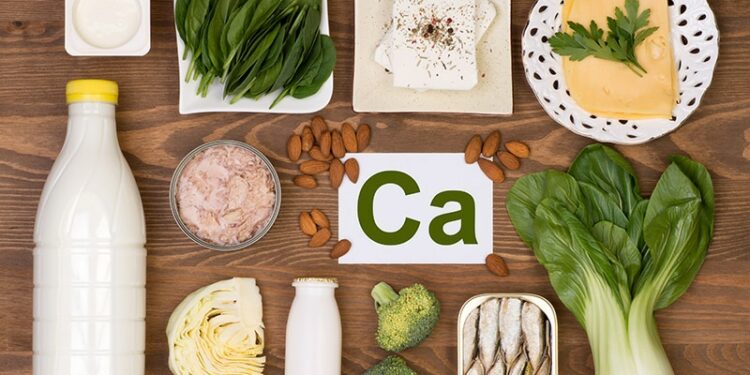[ad_1]
TOPLINE:
Higher calcium intake from dietary sources and supplements was consistently associated with a reduced risk for colorectal cancer (CRC) across different tumor sites, and increased consumption could benefit patients who don’t get enough of the mineral, a long-running cohort study found.
METHODOLOGY:
- Researchers analyzing the National Institutes of Health–AARP Diet and Health Study found that dairy food and calcium intake were inversely associated with CRC at an average of 7 years of follow-up. However, they did not report on associations by tumor site or by source of calcium.
- Now, with > 20 years of follow-up, researchers have addressed outstanding questions, including whether associations between calcium consumption and CRC differ by source of calcium, tumor site, or population subgroups.
- Participants included 471,396 adults free from cancer at baseline with self-reported good health. Their mean age was 62 years at baseline, and 59.5% were men.
- Baseline dietary calcium intake was assessed via a 124-item food frequency questionnaire. Total calcium intake was calculated by combining intake from dietary sources (dairy and nondairy) with that from supplements. Incident cases of CRC were identified using cancer registry data, and risk was analyzed using multivariable Cox proportional hazards models.
TAKEAWAY:
- During more than 7.3 million person-years of follow-up (median, 18.4 years), there were 10,618 first primary CRC cases.
- Participants in the highest quintile of total calcium intake (2056 mg/d for women, 1773 mg/d for men) had a 29% lower risk for CRC (hazard ratio [HR], 0.71) than those in the lowest quintile (401 mg/d for women, 407 mg/d for men).
- The inverse association was observed across all tumor sites, including the proximal colon (HR, 0.75), distal colon (HR, 0.73), and rectum (HR, 0.61).
- Dairy, nondairy, and supplemental calcium sources all contributed to risk reduction.
- Overall, for each additional 300 mg/d in total, dietary, and supplemental calcium intake, there was an 8%, 10%, and 5% decrease in CRC risk, respectively. In Black individuals, there was a 32%, 36%, and 19% decrease in CRC risk, respectively.
IN PRACTICE:
“Increasing calcium intake, particularly among groups with lower consumption, may be associated with reductions in avoidable differences in colorectal cancer risk,” the authors concluded.
SOURCE:
The study, with first author Semi Zouiouich, PhD, MPH, with the Division of Cancer Epidemiology and Genetics, National Cancer Institute, Bethesda, Maryland, was published online in JAMA Network Open.
LIMITATIONS:
Calcium intake was assessed at baseline only, with no consideration for changes over time. The study relied on self-reported dietary data, which may introduce recall bias. The number of CRC cases in certain racial/ethnic subgroups was limited, reducing statistical power for subgroup analyses.
DISCLOSURES:
The authors reported no conflicts of interest. The study was supported by the Intramural Research Program of the National Cancer Institute at the National Institutes of Health.
[ad_2]
Source link : https://www.medscape.com/viewarticle/higher-calcium-intake-may-lower-crc-risk-2025a10004p3?src=rss
Author :
Publish date : 2025-02-24 08:53:57
Copyright for syndicated content belongs to the linked Source.














